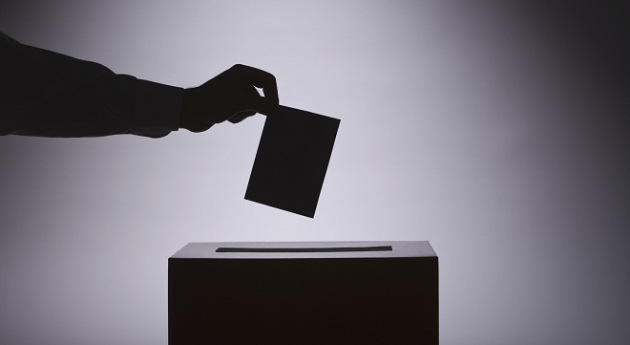…the blind believers of the electoral process lead the nation to a life of distrust, lowered confidence in the power of the individual, an overall apathy towards national issues and ignorant negligence toward the matters of the globe we live in – which affect us all the more.

The idea of Democracy has certainly been the most blissful one of modern times, as it holds the appeal of ridding the human civilization of despotic, dictatorial kingship; but the electoral process set under this ideal lacks the impregnation value that would bear fruit from this ideological seed. It is a pity that on the one side, we claim to be scientific and logical in our approach, but on the other hand, we are expected to blindly believe in the electoral process without scrutiny.
The Liberal class of our country has shown exactly this trait of belief in the unquestionability of whatever results the gods of the ballot-boxes have announced. When doubts are raised, they proclaim the doubters to be old-fashioned problem-makers who want to derail democracy from their idealized Utopia-to-be. It is equivalent to asking a surgeon to stop complaining of the germs on his dirty tools and go on with the surgery or else he would be killing the preeminence of the Surgery; thereby allowing lethal exposure of the germs to the body of the one in need of cure.
It is imperative, at the least, that the civil society of a country should have deemed free, fair and transparent balloting an uncompromisable necessity, without which no assembly should be established nor should the political process be allowed to proceed. But, alas, the blind believers of the electoral process lead the nation to a life of distrust, lowered confidence in the power of the individual, an overall apathy towards national issues and ignorant negligence toward the matters of the globe we live in – which affect us all the more.
The dilemma is similar in most of the world, the bigger the country, the more prone it is to electoral fraud, and the more the crowds are forced to be driven on catchy election slogans; there is no way for an individual to find out what happened to his/her vote once it was thrown into the ballot box. Even more painful is the fact that most electoral campaigns are run on false promises of more jobs, health and education – promises ditched the moment one gets hold of power, as the next step of the campaign is to immediately shift the blame of one’s own incapacity on the long, immeasurable corruption records of the previous governments.
There is also another preeminent supposal that not only constricts the campaign but also guides the nationals unto what they want from their elected parliament – the campaign, thus, is not only a giver of promises but also a calculation of the national will. Political leaders and the Media alike hammers upon the masses, through their repetitive campaign, that all they are and should be concerned about is only their immediate issues, such as jobs, reforms, infrastructure, health, education, etc. They never allow the masses to think out of the box, that is, to make a conscious stride upon matters that their governments intend upon the regional or global spheres. Therefore, when the Afghans go to the polls or the Indians fill their ballot boxes, perhaps they are unaware that their vote does not have the power to change the foreign policy of their governing class or how quickly the earth is being made to squeeze around them due to those policies. The same is the case even in the United States, where the common people have been trained to think only upon matters of immediate benefits and rights – for instance, calling troops back from occupied lands is just a campaign slogan; and any stride of the common people to force their government to change their global or foreign policy is harshly suppressed, as seen in movements like the Occupy Wall Street movement and others.
Two social machines – the Electoral Process and the Media – train us to be disconnected with the larger picture of humanity. They teach us to be practically apathetic and unconcerned with the plight of humanity all around us; we bear the news of pandemics, genocides, and invasion upon other countries as matters that deserve little of our concern. They cause us to break away from a world-view, and deny the larger-than-life picture of a wholesome humanity – all connected as one species, one family. So divided we become, secluded in individual strife, that a little force is enough to break us down. In today’s vulnerable times, every nation standing alone is more prone to dictation and invasion by outside power than humanity has ever been before.
Nevertheless, we keep on believing blindly in the electoral process and deem it the prime of our civility to sacrifice the cow of fair and transparent elections at the altar of the divinely unquestionable democratic process, the derailing of which will surely bring us to our doom. Not demanding a fully transparent ballot is a stamp upon our numbness, even towards our immediate matters. Yet, while we make this sacrifice, we vow apathy to the issues of global relevance which ultimately affect us more than the domestic ones; the precise reason for which is the understanding that comes with the democratic ideal, based on the power of the individual and directed towards individual welfare, and which somehow manages to divert the mind from the global and the universal.
This inside-out manner of thinking fashions the thought, it starts from individual happiness, education, clean drinking water, power at home and education facilities, and ends with the individual. Some of the more reasoning among society may even cross the unintelligible finery of the economic policy and the budget ups and downs; but what is happening in our neighboring states, how will we respond to Syria or Saudi Arabia, how will we balance between China and Iran, or to what extent will we allow India to step into our domestic issues or how we respond to what goes around in Ukraine and many such questions are conveniently dislodged from conscious thinking.
Moreover, prideful of living in such modern times of technological advances, we have practically been trained to never think about the people of Africa, how they live in hunger, disease and strife; or how humanity is being oppressed and exploited in numerous states around the world.
On one hand, we are quickly becoming part of the global village, and on the other, the public all around the world seems more and more detached from the issues that seem to happen outside the physical boundaries of their state. This serves well the purpose of the ruling families; for example, in Pakistan, India and Afghanistan all alike, they feed the public with the false slogan of democracy, a power that is never delivered, and right behind their backs, keep on pursuing foreign policies that may not be according to the aspirations of their people nor would serve their progress in the long run.
The individual’s conscience over the global matters is imperative in today’s times; if the War on Terror is one for all of us around the world; if the future global policies will be made upon stats of how climate change affects us all; if Non-Proliferation of ours Nukes is everybody’s business, then each one of us should be trained and made aware of these issues and wide-base consensus should be built in the masses with the help of the state machine and all its accessories – a consensus that comes from the masses – not one that is given to the masses via dictation.









Democracy is not just a govt. by electoral process. Democracy is a culture wherein the individual’s opinions matters and respected while the majority prevails. It allows an individual also to respect other’s opinions should he find himself without much support. Hence Democracy is a process, an evergoing process and it is not a system of good or bad. Good and bad happens with any dictator. The dictator could be a ruler, a teacher, a father or anybody. He may do good but he crushes the mental evolution of those he dominates.
I am afraid to say that writer has taken a very narrow, parochial view of democracy. Democracy is participation and the people who have been governed by despots for a long time, will not easily understand the system of democracy. Like Stockholm Syndrome, being under captivity, makes people start liking their tormentor over a period of time. This article reflects similar mindset.